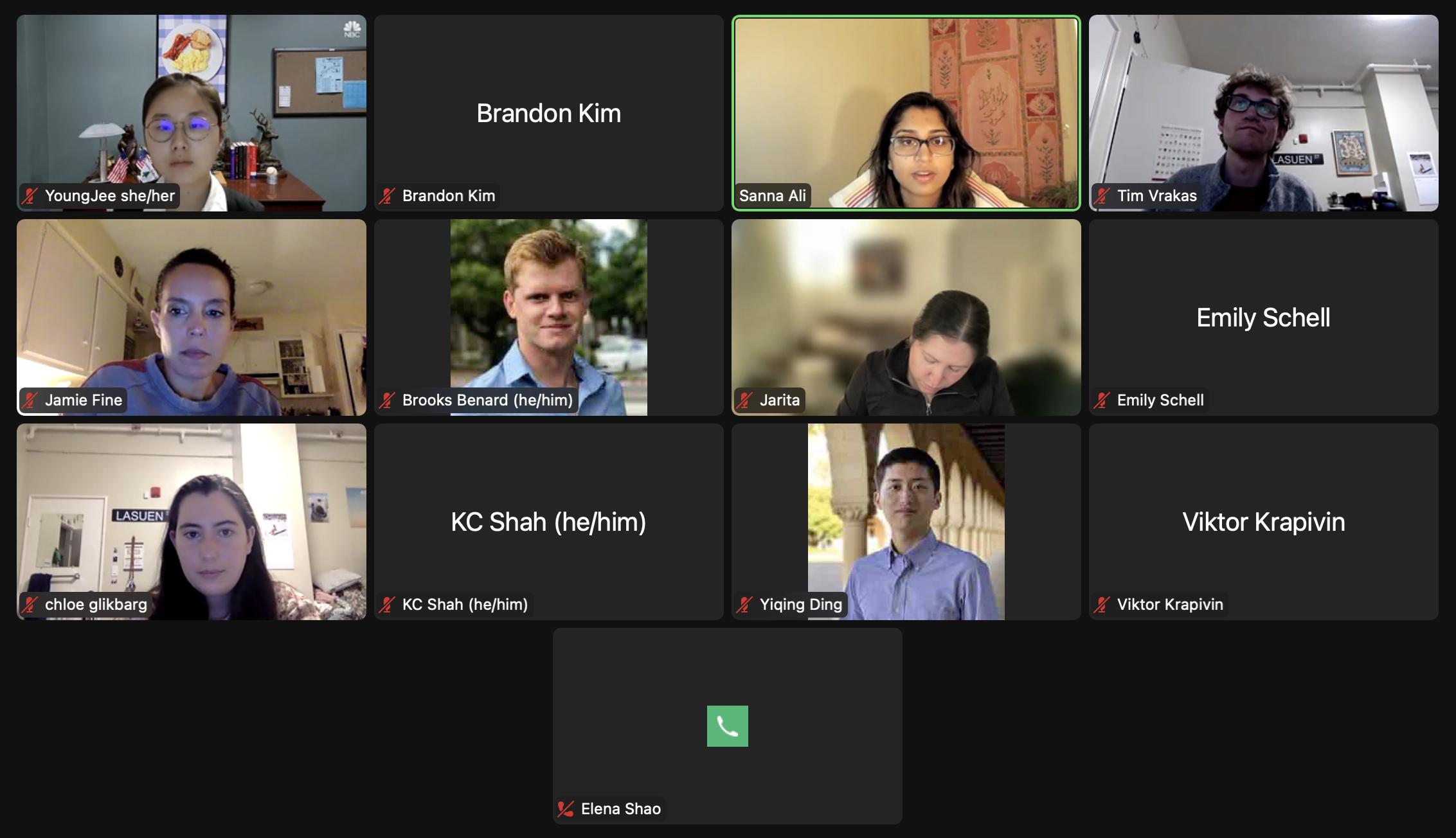The Graduate Student Council (GSC) unanimously voted to approve two bills addressing expanded COVID-19 accommodations for students, including a shift to hybrid and online classes, in their Wednesday meeting.
The first bill, the Equitable Learning Act, expands access to hybrid and recorded lectures for students with documented disabilities. The second pushes for related but more general accommodations, including extending the add and drop deadline for classes and implementing a Credit/No Credit grading policy for winter quarter.
Councilors stressed the importance of pushing for virtual accommodations given the uncertainty around the continued surge in COVID-19 cases on campus. The omicron variant has loomed over Stanford’s phased reopening plan, as undergraduate students returned to the classroom this past Monday despite 338 students still isolating as of Jan. 24.
According to GSC councilor Tim Vrakas ’21 M.S. ’22, who also serves on The Daily’s board, the omicron variant has taken a toll on many graduate student Teaching Assistants (TAs), who have expressed concerns about the return to in-person classes.
“This is my first quarter being an actual TA for an actual class, and it’s a disaster,” Vrakas said. “What if people don’t show up if there’s COVID?”
Reluctance to return to in-person instruction is understandable given the still-present threat of COVID-19, according to GSC councilor and fourth-year developmental and psychological sciences Ph.D. student Emily Schell. Schell, who teaches a proseminar at Stanford, said that she would ideally want to commit to online learning until COVID-19 cases fall significantly below current levels. Schell said this change would address spotty in-person attendance while also alleviating the burden on teaching staff, whom Schell described as being in “total limbo.”
Councilors also scrutinized the meetings being held by the Graduate Life Office (GLO) and other administrators about COVID-19. The GSC was recently invited to contribute to these meetings, according to the councilors.
GSC councilor and fifth-year modern thought and literature student Jamie Fine questioned whether student resources, especially for mental health, were being considered by administrators in discussions around Stanford’s response to COVID-19.
To Fine, Stanford’s COVID-19 response seems to suggest a focus on the physical needs of students, rather than their mental needs. The latter is the “much harder fix,” said Fine, who likened the issue of mental health to a “hot potato” being passed around by University administrators.
University spokesperson E.J. Miranda disputed Fine’s claim, writing in a statement to The Daily that the University has provided “numerous resources” in support of students’ mental health needs and is currently working to increase student awareness of these resources. Miranda pointed to Stanford’s “Trees Together, Transition Together” program, which acknowledges the “challenges, loss and grief” faced by students during the pandemic and assists them with their transition back to campus, as one potential resource.
“Supporting the mental and emotional health of students is a critical priority for Stanford, especially at this time of crisis and isolation for so many members of our campus community,” Miranda wrote.
Schell highlighted the GLO’s current focus on meeting the needs of students in isolation as one avenue through which the GSC could advocate for increased mental health support. She also acknowledged the impact of the pandemic on the general student body, and the importance of advocating for additional Counseling and Psychological Services (CAPS) support for students beyond those in isolation.
“Isolation is a horrible, mentally jarring experience,” Schell said. “But this is not the only situation where we need more support for CAPS.”
This article has been updated to include comment from University spokesperson E.J. Miranda.
